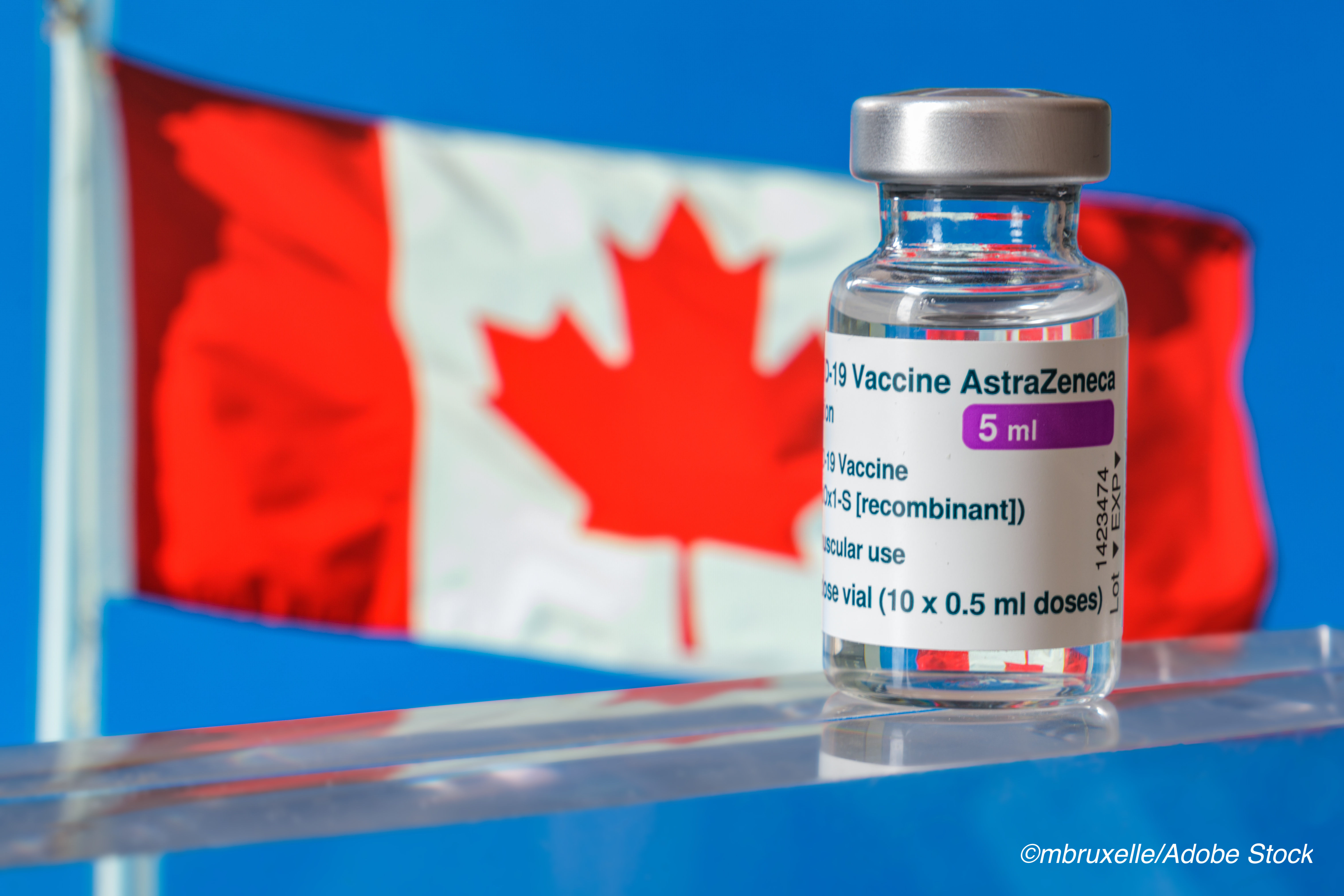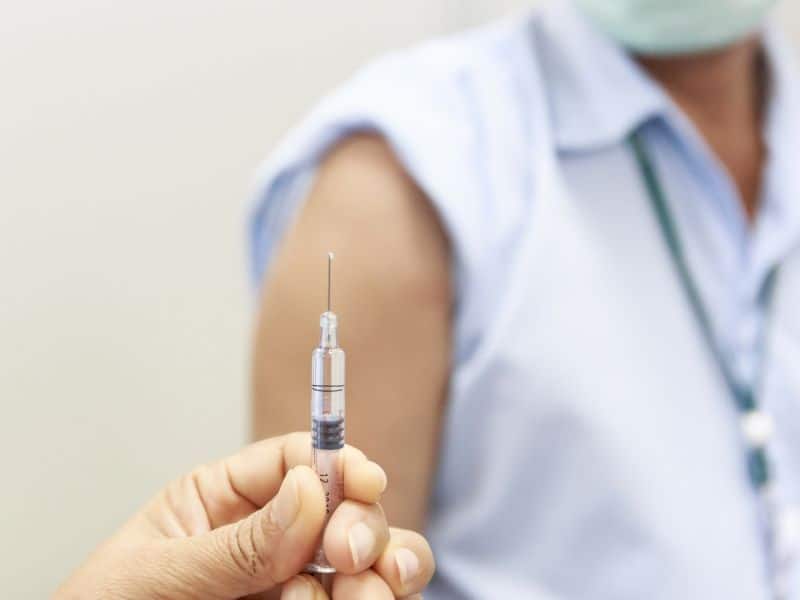
Canada’s National Advisory Committee on Immunization (NACI) recommended against using AstraZeneca’s Covid-19 vaccine in adults under 55 years of age, citing concerns over vaccine-induced prothrombotic immune thrombocytopenia (VIPIT).
Reports of venous thromboembolism tied to vaccination with the AZD1222 vaccine arose in Europe earlier this year, leading several countries to suspend use of the vaccine while the latest safety data was reviewed. Since then, the European Medicines Agency (EMA) and the WHO have thrown their support behind the vaccine, arguing that the benefits substantially outweigh the risks. Notably, Canada initially appeared confident in the AstraZeneca shot, going so far as to expand the vaccine’s rollout to include patients over 65 years of age.
Now, however, Canadian health officials have changed their tune.
“Following population-based analyses of VIPIT assessing risk of Covid-19 disease by age, and considering that alternate products are available (i.e., mRNA vaccines), from what is known at this time, there is substantial uncertainty about the benefit of providing AstraZeneca Covid-19 vaccine to adults under 55 years of age given that the potential risks associated with VIPIT, particularly at the lower estimated rates,” NACI explained. “As a precautionary measure, while Health Canada carries out an updated benefit/risk analysis based on emerging data, NACI recommends that the vaccine not be offered to adults under the age of 55. Adults 55 years of age and older may still be offered the AstraZeneca vaccine with informed consent, given the increased risk of hospitalization and death due to Covid-19 disease in this population and since VIPIT appears to be a rarer event in that age group.”
NACI added that, as reported VIPIT cases post-vaccination occurred primarily in women, it is possible that men may be less at risk for this adverse event — however, the committee also acknowledged that it’s possible that the predominance of VIPIT among women may be due to more women receiving the vaccine, “making it difficult to assess risk based on sex.”
While Health Canada completes its investigation, NACI urged vaccination centers to immediately halt giving the AstraZeneca shot to any patients under 55 years of age and warned patients who have received the vaccine to seek immediate medical attention if they develop symptoms of thromboembolism or thrombocytopenia — including shortness of breath, chest pain, leg swelling, persistent abdominal pain, neurological symptoms including sudden onset of severe or persistent worsening headaches or blurred vision, skin bruising other than at site of vaccination, or petechiae — at any time from days 4-20 post-vaccination.
AstraZeneca has hit a series of stumbling blocks with its Covid-19 vaccine, from reports that two vaccine trial participants developed severe neurological symptoms last fall to the U.S. National Institute of Allergy and Infectious Diseases (NIAID) questioning interim phase III trial results for the vaccine based on concerns from the independent Data and Safety Monitoring Board that the data was outdated — NIAID’s assertion came just one day after AstraZeneca announced the interim results.
John McKenna, Associate Editor, BreakingMED™
Cat ID: 190
Topic ID: 79,190,730,933,190,926,561,927,151,928,925,934


